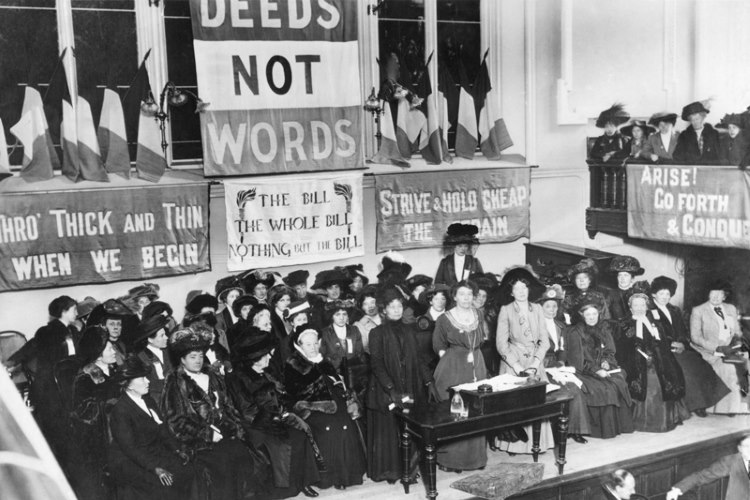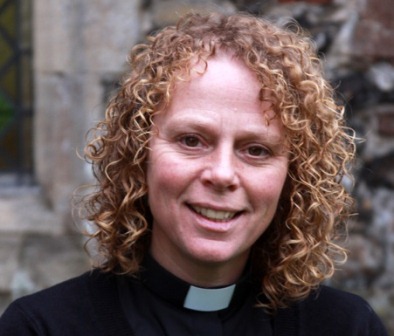Opinion

The emancipation of women – 100 years on
Suzanne Cooke wonders how far we have come in removing gender discrimination since women were given the right to vote over 100 years ago.
February 6 each year marks the anniversary of “The Representation of the People Act 1918” the act of parliament that finally allowed women over the age of 30 the right to vote.
Maybe you can remember some of what those women went through, but even a brief look at the accounts makes for pretty horrifying reading. From our modern perspective, it is hard for most of us to really appreciate just how little power women had in late Victorian England and what a courageous thing it was for them to embark upon the long road to gaining the right to vote.
St Luke’s story of Christ’s Presentation at the temple, of Simeon and Anna, is one of the many times that Luke pairs women and men together in his story telling. The figure of Anna is fascinating, a woman so devoted to her God that she never leaves the Temple – a life committed to serving and prophesying God’s word – a life set apart – a life given in the love and service of the Lord. But over the course of Christian history there have been many committed women who have chosen to sacrifice a ‘normal’ life to follow their love of God.
The women who campaigned all those years ago for women’s suffrage were prepared to sacrifice everything, including their lives, to gain women a voice in a society where they had little or no power. 100 or so years on I wonder what they would think about how far we have come?
I went out to dinner this recently with a friend who, in 1994, was one of the first wave of women to be ordained as a priest in the Church of England. She had actually been ordained as a permanent deacon in the 1980’s – at the time, that was a close as women could get to ordained ministry. And even today there are some that continue to feel called to this kind of ministry - a ministry marked out as being one of service, in many ways not unlike the kind of model shown by Anna and Simeon.
Having met and spoken with women over the years, who, like my friend were in that first wave of women priests, I always get the sense of the scars they bear.
In those early days, she was one of the brave women whose job it was to try and put forward the argument that, as modern Christians, there was no real theological reason to exclude women from ordained ministry. I am not sure I could have stood, as she did, in deanery meeting after deanery meeting, shoulder to shoulder with men and women with genuine hatred in their hearts for what she represented.
Surely it must be the case that, however hard you try, you would be deeply and permanently affected by a fight such as this. And it is definitely my sense that these women still carry the sad burden of having stared too hard and for too long at the darkness many people carry in their hearts, believing it to be in the name of God.
Of course, we now have 26 years’ experience of women’s priestly ministry in the Church of England and are beginning to see an increasing number of women Bishops being installed into dioceses across the country. It might even seem as if ‘we’ve never seen it so good’!
And of course, it can’t be denied that compared with the women caught up in the suffrage movement 100 years ago, women’s ‘liberation’ in our modern society might appear a far more realistic possibility to us than it ever could have done to them.
The apostle Luke is considered to be the great storyteller, the gospel written to speak to the broadest swathe of his society. And maybe it’s no coincidence that his is the gospel therefore that goes farthest in giving women a place in the story of the ministry of Christ. This despite the cultural pressures of his time.
But, even as Luke recognises and honours Anna’s dedication and insight there is an interesting tension in his storytelling. Our account of the Presentation of Christ is set alongside Mary and Joseph’s visit to the temple to fulfil the tradition of ritual Purification. This was to fulfil the Jewish law in Leviticus that states that women were not allowed access to the temple until 33 days after the circumcision of the child. This tradition was one that was taken up by the church and would be known to us as the ‘Churching of women’. Something that I hope we would recognise today as being out of step with modern society.
What I think the two sides of this story remind us, is of the ways all of us are affected by the cultural values of our own times. The many, many ways in which we are blind to the subtle ways we exclude, marginalise and supress, believing ourselves justified by the cultural situation we find ourselves in.
The ministry of Jesus defied the cultural conventions of his time and so it is vital, in our own mission and ministry to mirror his example allowing for the possibility that all people might one day experience true liberation.
The image above of a Suffragette meeting in 1908 is courtesy of Wikipedia Commons.
 Suzanne Cooke is the vicar of four rural churches, sitting at the foot of the Cheviot Hills in the far north of Northumberland. Her call to ministry came whilst living with her family in North Norfolk and she is proud to have begun her ordained life in the Norwich Diocese.
Suzanne Cooke is the vicar of four rural churches, sitting at the foot of the Cheviot Hills in the far north of Northumberland. Her call to ministry came whilst living with her family in North Norfolk and she is proud to have begun her ordained life in the Norwich Diocese.
The views carried here are those of the author, not of Network Norfolk, and are intended to stimulate constructive and good-natured debate between website users.